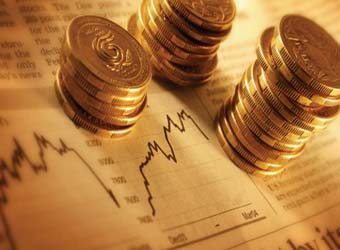Signs of an improvement in business sentiment are emerging in Egypt despite continuing political instability as the military-backed authorities continue their crackdown on Islamists ousted from power in July.
After a disastrous summer for the country’s businesses after the coup that toppled Mohamed Morsi, the elected Islamist president, gloom still overshadows the economy but entrepreneurs in some sectors are now reporting a pick-up in activity and a gradual return of confidence.
Figures published earlier this month by HSBC tracking activity in the non-oil private sector showed a sharp increase in the purchasing managers’ index, PMI, from 44.7 in September to 49.5 in October, its highest level in eleven months. Fifty marks the separation between contraction and expansion.
Billions of dollars in cash injections from Gulf countries, two stimulus packages announced by the government and hopes of a recovery in tourism have helped generate optimism.
However, analysts caution that the return of activity has not been accompanied by any significant new investment.
“I think sentiment for local businesses has improved a lot but it is difficult to separate their relief at Morsi’s departure from cold business decisions,” said Simon Kitchen, strategist EFG-Hermes, the Cairo-based regional investment bank. “They are relieved not just because Morsi was not doing a good job managing the economy, but they felt that their businesses were under threat from his Muslim Brotherhood group trying to nurture an alternative economic elite.”
He said that foreign investors remained wary of instability in Egypt. In addition, the deferral of big economic reforms such as the reduction of costly fuel subsidies continued to hamper a strong return of interest in the country.
Foreign investors are adopting a “wait and see attitude,” according to Mr Kitchen, though some international companies are now happier to send staff to Egypt after the US allowed the families of embassy employees to return having ordered their departure in the summer.
The lifting of a nightly curfew on Cairo and other provinces in mid November helped restore an image of normality in the capital and eased pressures on retailers and local companies transporting goods overnight.
Although many manufacturers have shut down or are struggling with debt, Ihab Derias, chairman of the Egyptian Furniture Export Council, said there has been “a complete turnround” in sentiment within his industry.
He argued that the expectations of a recovery in tourism has injected new momentum in hotel projects that had faltered over the past two years. Many European countries have now lifted or eased travel bans on Egypt, and officials say they expect tourist numbers to start climbing next year.
“Stalled projects are now moving,” said Mr Derias. “We have new orders. Jobs which take six months to complete, we are being asked to finish in one month. Hotels which were reluctant to spend or were spending slowly now have target dates to open. For my company, the last quarter in 2013 will improve results for the whole year. We had a horrible third quarter.”
During their year in power, Brotherhood officials spoke of promoting tourism, but according to Mr Derias, investors were put off by comments from within the larger Islamist movement calling for alternatives to sun and sea tourism, the biggest draw in Egypt.
“We are hoping 2014 will be better, and that at least hotels will break even instead of making losses like before,” said Sameh Sobhi, general manager of the Semiramis InterContinental, one of the worst affected establishments because of its location near Tahrir Square, the iconic centre of protests since the 2011 revolution.
The recent turmoil in Egypt has severely damaged demand for office and retail space, but the housing market has been resilient as more Egyptians decided to put their savings in bricks and mortar rather than risk a further devaluation of the currency which lost 18 per cent of its value this year.
Ahmed Badrawi, chief executive of SODIC, a high-end developer, said his company has had a record year in 2013, with some E£2.5 bn in sales, higher than their “best year before the 2011 revolution.”
“In the last two or three months we have seen a big surge,” he said. “There is liquidity, there is appetite. Maybe the recent reduction in interest rates encouraged more people to buy.”
Mr Badrawi cautioned, however, that the sector would be held back unless the government could stop the “settling of scores” with real estate companies. After the 2011 revolution contracts awarding land to developers came under legal scrutiny amid allegations of corruption by the government of Hosni Mubarak.
Car sales are also rising said Menatallah Sadek, corporate finance director of GB Auto, which assembles and distributes a range of passenger vehicles and industrial equipment. September and October were “phenomenal,” she said.
“As management we had two theories,” she said. “Either this is pent-up demand after the summer or the start of a recovery. Sentiment is much better. As long as there are no major surprises or disasters, we see early signs of a recovery for consumer demand.”
Source: The Financial Times


